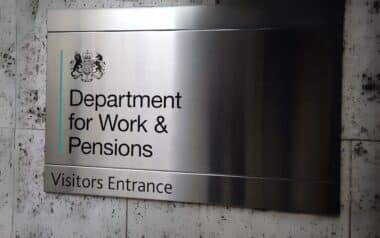The job market has shown signs of weakening, with a noticeable decline in the number of people on payrolls during December. Concerns over new tax measures and their impact on businesses’ ability to hire have added to the uncertainty surrounding the UK’s economic future. The latest figures raise alarms about the longer-term consequences of fiscal decisions and the potential for further job cuts in the coming months.
Job Market Slowdown
The UK saw a significant drop in payrolled employment last December, with 47,000 fewer people recorded on payrolls. This marked the largest fall since the pandemic, leading to growing concerns about the country’s economic stability. The drop follows a similar decline of over 32,000 in November, adding to the worrying trend.
Several factors appear to be driving this downturn:
- Tax hikes: Chancellor Rachel Reeves’ controversial £25bn National Insurance tax increase in October has sparked fears among employers, many of whom may be hesitant to expand their workforce in light of rising costs.
- Job vacancies: There were 740,000 job openings in December, a notable reduction from 858,000 in October, suggesting that demand for workers has softened.
- Economic uncertainties: The combination of higher taxes and inflation has placed significant pressure on businesses, limiting their ability to hire and invest in new talent.
Rising Unemployment and Wage Growth
Unemployment figures have also been affected, with the unemployment rate edging up to 4.4% during the three months leading to November. This uptick in unemployment comes as wage growth continues to accelerate, reaching 5.6% on the year, particularly driven by a 6% increase in the private sector.
Despite these rising wages, economists caution that the situation may be temporary:
- Weak demand: A reduction in job vacancies and lower business investment could lead to a slowdown in wage growth, especially as companies respond to higher operating costs.
- Bank of England’s response: In response to weaker demand, analysts predict that the Bank of England will reduce interest rates in the near future. This could bring interest rates down from 4.75% to 4.5%, potentially stimulating the economy and helping to cool the labour market.
In the face of these shifting dynamics, the sustainability of wage growth remains uncertain, with future rate cuts from the Bank of England seen as a crucial factor in managing the broader economic slowdown.
Potential Impact on the Bank of England’s Policy
Economists, including Yael Selfin from KPMG UK, suggest that the rise in business costs caused by new tax measures is likely to reduce demand for workers. This, in turn, could prompt the Bank of England to take action:
- Rate cuts: It is expected that the Bank of England will lower interest rates in the coming months as part of a strategy to address the downturn in the labour market and the broader economy.
- Impact on inflation: As businesses face increasing costs, wage settlements may become less generous, helping to bring inflation closer to the target set by the central bank.
The road ahead
The UK labour market faces a challenging period ahead, with businesses grappling with rising costs and reduced demand for workers. While wage growth remains a positive indicator, the overall outlook for employment remains uncertain.
- Potential for further rate cuts: With the Bank of England expected to reduce rates, businesses and workers alike may see some relief, though the long-term effects of current fiscal policies remain to be seen.
- Sustained economic challenges: The impact of rising taxes, coupled with inflationary pressures, may continue to weigh heavily on the UK’s job market throughout 2025.
In this context, the UK’s labour market will need to navigate significant challenges, with the balance between fiscal policies and economic recovery determining its trajectory in the coming years.









